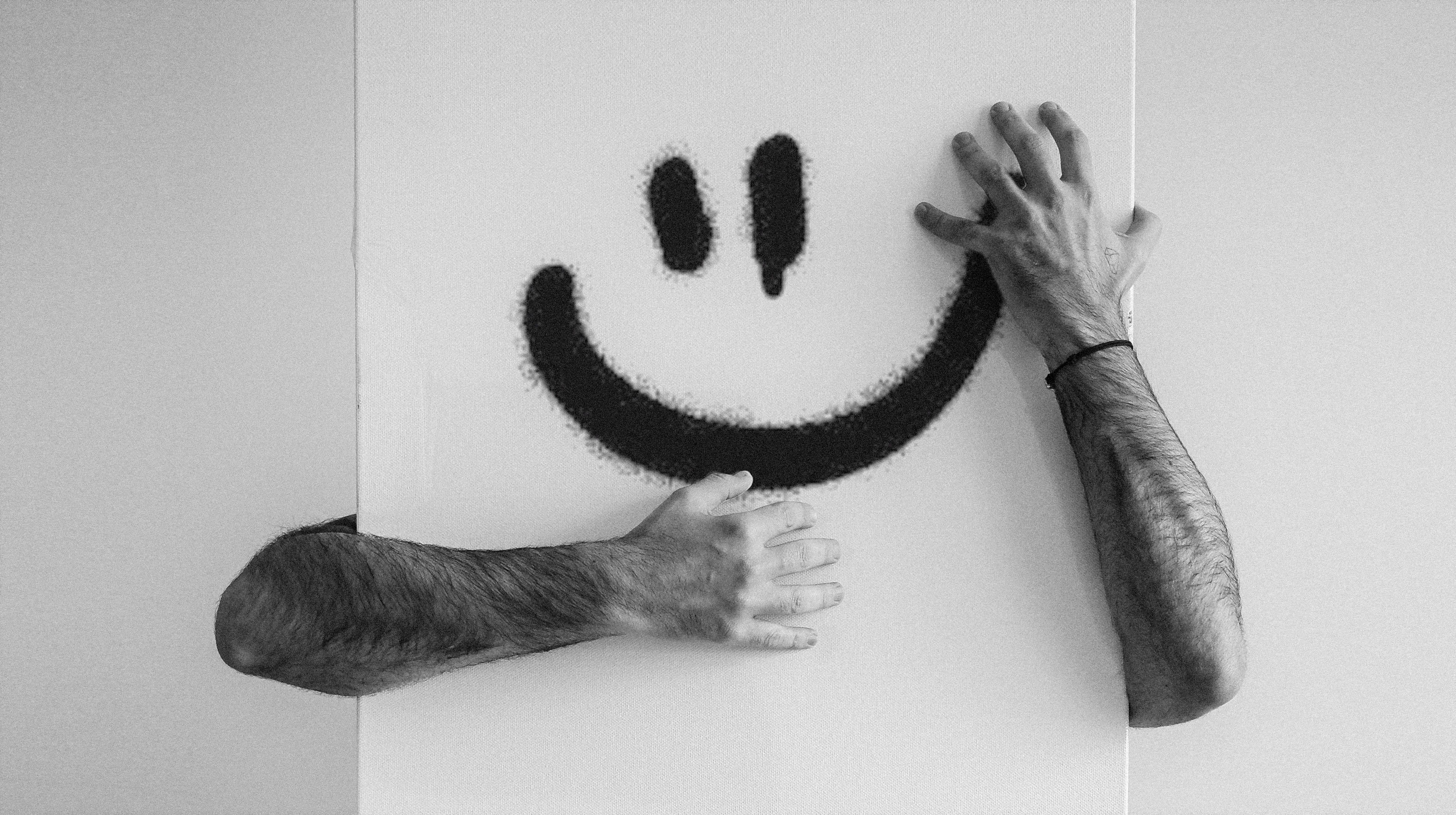How are you?
How are you? This question is frequently asked; you will hear it almost daily. What’s your answer? Is it always honest? Or do you feel that you’re only being asked for politeness’ sake? This article addresses the issue of our wellbeing and shows just how important a “how are you?” can be, above all in difficult times. We take a look at how we are in Switzerland and how you should act when you notice that someone is struggling. In addition, we’d like to give you some tips for staying in touch with your team colleagues while you work from home.
How are we?
In 2018, the Pro Mente Sana foundation collaborated with Sotomo research centre on an extensive survey on the psychological wellbeing of the Swiss population. The aim was to find out how people in Switzerland really are. The results showed that most of the participants (nearly 70%) answered “fine” or “great” to the initial question of “how are you today?”. Practically no one (only 2%) admitted to feeling bad. Interestingly, however, approximately one-fifth of respondents admitted later in the survey that they were currently in a psychological low that had already lasted for some time. In other words, these people seemed not to be doing so well at that time. Of the others surveyed, only a third said they had never experienced poor mental health. From this, we can conclude that the question “how are you?” frequently does not receive an entirely honest answer, and that a brief “fine” or “great” hides more than it admits. Why? A total of 74% of participants admitted that the question is an empty phrase for them – a polite conversation-starter and nothing more. “Fine” is simply the standard answer. What’s more, the study’s authors have discovered that answers to this question are more honest when the question is asked by friends. Likewise, men and older people are more likely to answer truthfully. However, people who have been feeling low for a long time are even more likely to hide how they really are, which is problematic in this context. Why does hardly anyone want to talk about it? The main reason for hiding your real mood and psychological state is fear of how the people around you will react. Affected people are afraid that they will not be seen as productive, or will be seen as weak or unstable, or that other people will turn their backs on them – among other things!
As you may have noticed, this survey was conducted before the Covid-19 pandemic. How has the pandemic affected our mental health?
One thing is sure: the pandemic has left its mark on our health. A partnership study between the CSS and Sotomo found that the number of adults who assess themselves as healthy or very healthy has dropped from 78% to 73%. Fortunately, we can also report that, despite the ongoing crisis, the Swiss population is largely doing well. Almost 30% of people told the survey that their experience of the pandemic has increased their resistance to crises. However, these people had good mental health before the pandemic started. The difference between psychologically robust people and those who are less robust has increased as a result of the pandemic. Moreover, the situation of young women (up to 30) needs to be taken seriously: approximately 50% of them evaluated their condition as “so-so” or worse. The 18- to 35-year-olds, too, feel they are under more pressure to always be healthy and productive. Young people and young adults in Switzerland have likewise suffered a great deal. If you are interested, you can read more about how Switzerland's younger people have fared here.
So now we come back to the question under discussion:
How are you?
Have you already heard of the “How are you?” campaign? This is a national campaign to promote mental health among the population and destigmatise mental illness. The aim is to raise awareness of the subject and to encourage people to talk about mental health problems. You can find interesting information, brochures and campaign materials, and many other things, on the website, so take a look! (The website is right here.)
Has anybody asked you how you are today? Or have you taken the time to consider your situation? What would your answer to the question “how are you really?” be? Take a little time and think about how you feel right now.
And if anyone asks you how you are, be brave and give them an honest answer. Even if the question has long sounded like a polite cliché, many of the people around you really care about how you are. Maybe you have often used the question yourself, as a conversation starter? In future, make sure you give the person you’re talking to time and space for an honest response. Genuinely listen. A simple, seriously meant “how are you?” can have a great effect. When you ask someone how they are, it’s entirely possible that the answer won’t always be positive. How should you react when it isn’t?
How should you respond when someone is struggling?
Broadly put, you should respond appropriately to the other person. But what does that actually mean? Firstly, you should trust your feelings if they are telling you that someone else (whether in the professional context, or the private one) is not doing well. Express your worries and always talk from your perspective. For example, you could start the conversation like this “I’ve noticed that... and I’m worried that you’re struggling. Would you like to talk about it?” Be aware that you may not get an answer immediately. Indicate that you have time and that you will genuinely listen. If this person opens up to you and starts talking, then listen attentively. Don’t start doing anything, but give them the time to get their problems off their chest. Try not to analyse the problems they portray, but take them seriously. If necessary, promise the person that you will help, and encourage them to seek and accept external support if needed. However, you should never overstep your own boundaries in all this. Helping someone else when they’re having a crisis can be very stressful. So take care of yourself too, and get help if you feel overwhelmed.
Remember that talking about it is the first step (you can find support services here on How are you?). In addition, you will find helpful conversation tips or information and advice about mental health in the workplace for employees and more for managers in the “Wie geht’s dir?” campaign brochures. You could, for example, read the information and advice for managers to find out how to identify mental stress and how you can start a conversation with the person concerned.
Regarding this whole matter, it is important to remain in regular contact with each other. Only in this way is it possible to talk to each other about your personal situation and it also makes it more likely that you will notice if someone else is not doing great. You can consequently offer support or make the other person aware of support services. Remaining in regular contact isn’t always easy, particularly now we are all working at home.
Staying in touch while working from home
Working from home has by now become almost routine for many people. Some like and appreciate it, others less so. Staying in regular contact with your colleagues is not always so simple when you work from home. Social chitchat happens automatically in the office. You drink a coffee together or talk briefly in passing about your weekend or how you are. You know what’s going on and how other people are. But when you work from home, all these informal interactions just vanish. You frequently only talk about work, or don’t even see or hear from your colleagues for days on end. Staying in touch is very important in exactly these situations, because we get significant support from our bonds with our colleagues.
Are you working from home too? And do you find it hard to stay in touch with your colleagues and know how they are? Then see below for some ideas and tips for facing this challenge. The ideas are suitable for both co-workers and managers.
Tips and ideas
- Organise virtual coffee breaks. Meet once per week for coffee, for example. Make sure that conversation isn’t just about work. Nobody should feel obliged to participate. You can find more inspiration for your breaks here.
- Whenever possible, turn your video on for discussions and meetings. This way the facial expressions of the people you’re talking to will also give you information about how they are.
- A large part of non-verbal communication is absent from written communications via email or chat. So pick up the phone and call your colleagues every now and then, particularly when you want to talk about emotional matters.
- And if you haven’t seen or spoken to someone for a long time now, call them and ask how they are and what they’re currently working on. And tell them what’s keeping you busy now too. Of course, you can also write a short message if you don’t want to call (WhatsApp, chat, email, whatever suits you).
- Create a team chat in which private things can also be explicitly shared.
- Organise team challenges. You can find inspiration here.
Further information
Here are more tips and information about working from home:
- Dureschnufe.ch
- Gesundheitsförderung Schweiz (Health Promotion Switzerland) has a WFH Kit
- Gesundheitsförderung Schweiz (Health Promotion Switzerland): Tips for working from home
- ZHAW: Healthy home working
- ETH Zurich: Tips for working from home
- StressNoStress.ch: Covid-19 and working from home
- Blog post “Living in the office”
References:
Bühler, G., Hermann, M., Krähenbühl, D., & Würgler, E. (2018). «Wie geht's dir?» Ein psychisches Stimmungsbild der Schweiz. Forschungsstelle Sotomo im Auftrag von Pro Mente Sana. https://sotomo.ch/site/wp-content/uploads/2020/12/wie-gehts-dir-pro-mente-sana-sotomo.pdf
Craviolini, J., Hermann, M., Krähenbühl, D., & Wenger, V. (2021). Die CSS-Gesundheitsstudie 2021. Forschungsstelle Sotomo im Auftrag von CSS Versicherung.
Galliker, E. (2020, March). Survival-Guide fürs Homeoffice. SUVA. https://www.suva.ch/de-ch/news/tipps/homeoffice-wie-geht-das
Hobacher, X., & Hoisel, A. (o.D.). Was tun, wenn es jemandem schlecht geht. Feel-ok.at. https://www.feel-ok.at/de_AT/jugendliche/themen/suizidalitaet/hilfsangebote/sich_sorgen_machen/hinschauen/was_tun-_wenn_es_jemanden_schlecht_geht.cfm
 subscribe to newsletter
subscribe to newsletter


